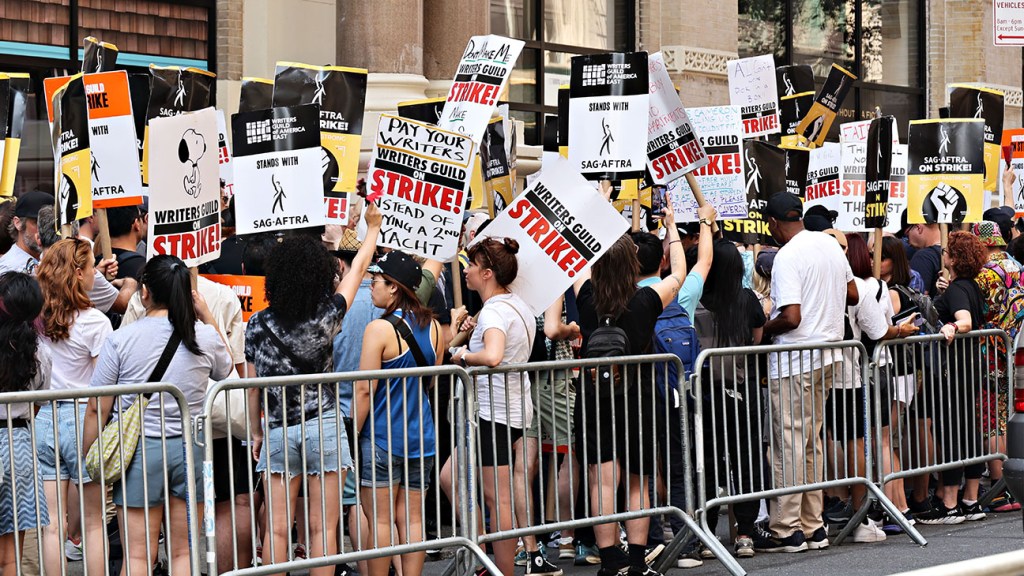
Striking writers and other members of Hollywood are calling the tentative deal reached by the Writers Guild and the AMPTP on Sunday a “victory.”
The deal was announced Sunday, Sept. 24, 146 days after the writers strike began on May 2 and following five back-to-back days of negotiations that ran through the weekend.
In its message to members, the union’s negotiating committee asked for patience on details of the pact: “What remains now is for our staff to make sure everything we have agreed to is codified in final contract language. And though we are eager to share the details of what has been achieved with you, we cannot do that until the last ‘i’ is dotted.”
“SAG-AFTRA congratulates the WGA on reaching a tentative agreement with the AMPTP after 146 days of incredible strength, resiliency and solidarity on the picket lines. While we look forward to reviewing the WGA and AMPTP’s tentative agreement, we remain committed to achieving the necessary terms for our members,” said the actors union, which also is striking. “Since the day the WGA strike began, SAG-AFTRA members have stood alongside the writers on the picket lines. We remain on strike in our TV/Theatrical contract and continue to urge the studio and streamer CEOs and the AMPTP to return to the table and make the fair deal that our members deserve and demand.”
The DGA, which ratified its own new deal with the AMPTP in June, also issued a note of congratulations to the WGA. “Congratulations to the WGA on reaching a tentative agreement tonight on behalf of their members,” the directors guild said in its statement. “We have been proud to support the writers in their fight for a fair deal and look forward to reviewing the details of the agreement. Now it’s time for the AMPTP to get back to the table with SAG-AFTRA and address the needs of performers.”
California Gov. Gavin Newsom also released his own statement: “California’s entertainment industry would not be what is today without our world class writers. For over 100 days, 11,000 writers went on strike over existential threats to their careers and livelihoods — expressing real concerns over the stress and anxiety workers are feeling. I am grateful that the two sides have come together to reach an agreement that benefits all parties involved, and can put a major piece of California’s economy back to work.”
The two sides were close to reaching a deal for several days, according to studio-side sources, after returning to the table for the first time since May 2 in late-August. Lawyers have reportedly been working on contract language since Friday night and had moved to finer details on Saturday morning. One of the key issues that kept both sides at the table over the weekend was artificial intelligence.
The tentative agreement, which still must be ratified by the union’s membership of more than 11,500 writers, could mark the end of one of the longest strikes in Hollywood history, the third-longest in the WGA’s nearly 70 years and the first double strike alongside SAG-AFTRA since 1960.
Frequently labeled a turning-point negotiation for the entire industry, the strike has been centered on issues both recurring and emerging in entertainment’s expanded streaming age. Those include health care contributions and adjustments to the current structure of residuals, but also guardrails around the use of AI and transparency regarding streaming performance.
For writers both union, pre-WGA and nonunion who stood in solidarity, the last five months have proven challenging. Scribes have faced food insecurity, the loss of their homes, the end of first-look deals, and on the daily line, dangers like high temps and car traffic.
Now, with a tentative agreement locked down, Hollywood is celebrating what could not only usher in the end of the writers’ work stoppage but may encourage the AMPTP to return to the table with SAG-AFTRA to firm up a deal and end its more than two-month strike as well.
See some of the initial reactions below.













